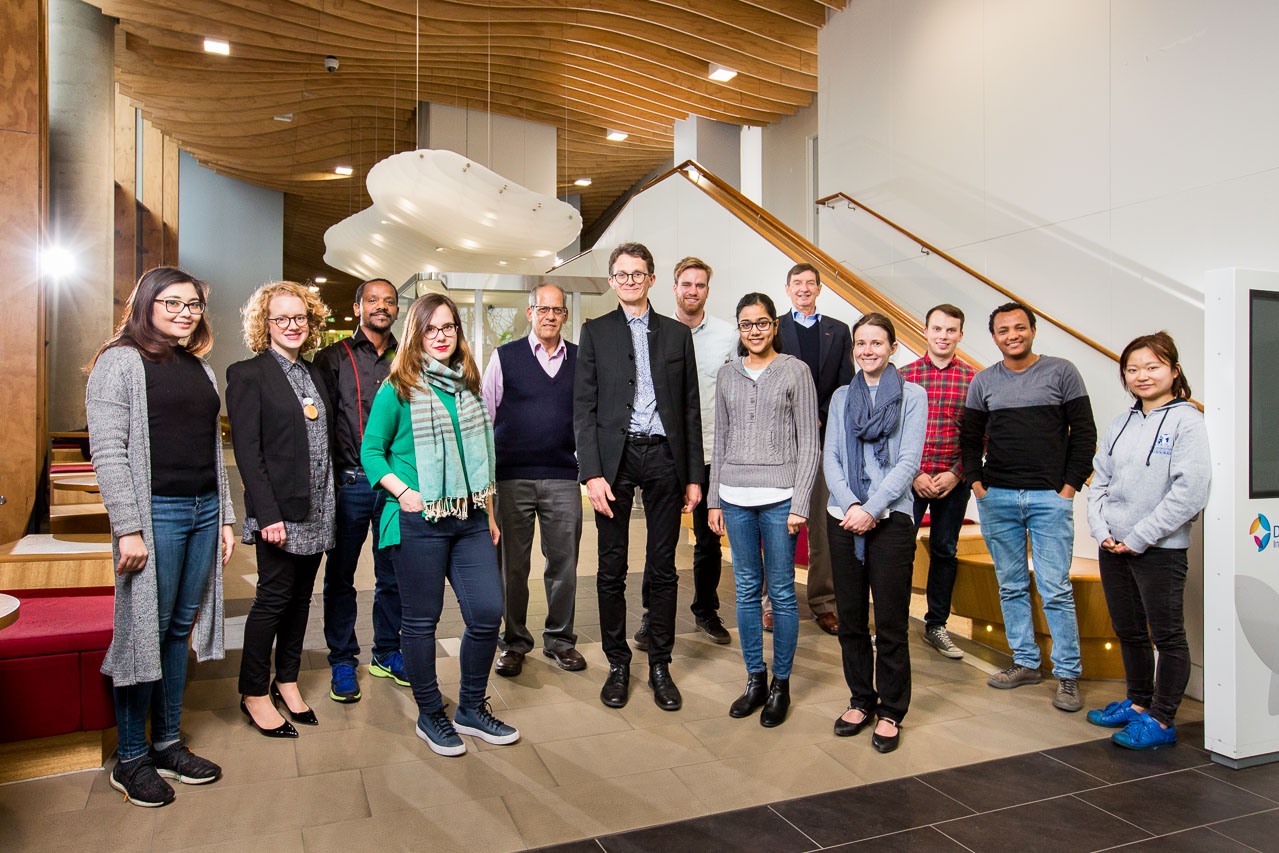-
How malaria parasite protein PfEMP1 interacts with the human immune system
Stephen’s group have an NHMRC-funded Project Grant to study how the proteins on the surface of malaria-infected red blood cells interact with cells of the immune system. The principal protein, called P. falciparum erythrocyte membrane protein 1, or PfEMP1, comes in many variants, a subset of which have been associated with severe malaria in young African children. Stephen’s group are studying the link between PfEMP1 variants and immune response in their Melbourne laboratory and with colleagues in Blantyre, Malawi, where Stephen is co-supervising a local PhD student who is studying parasites and immune responses in children with malaria.
-
Glycoasminoglycans: sugars that alter the immune response to malaria
Louise Randall has an NHMRC Project Grant to study how complex sugar molecules called glycosaminoglycans (or GAGs), produced in the placenta, shield the malaria parasite from the immune system. Louise and her collaborators at Sunshine Hospital, University of New South Wales and Imperial College London are developing techniques to purify different GAGs from placenta and to determine the placental proteins to which they are attached. Louise is studying how different versions of these sugars alter immune response to malaria parasites and how this affects immune response to malaria in the placenta, and whether high blood levels of GAGs might protect pregnant women from malaria.
-
Understanding and preventing effects of malaria on pregnant women and their babies
Stephen’s group has a long-standing interest in how malaria affects pregnant women. The parasite accumulates in the placenta and affects both mother and baby. Stephen’s group’s work covers understanding how malaria affects the function of the placenta (such as transfer of nutrients to the baby), how mothers develop protective immunity against placental malaria, and studies of how to protect pregnant women from malaria. They recently completed a big study in Papua New Guinea of malaria prevention in pregnant women and showed that their drug combination could decrease low birth weight babies by a quarter and premature deliveries by a third.

Professor Stephen Rogerson
(03) 8344 3259 | sroger@unimelb.edu.au
- Position:
- Head of the Malaria Laboratory
- Theme(s):
- Malaria, Bacterial and Parasitic Infections
- Discipline(s):
- Global Health, Clinical and health systems research
- Unit(s):
- Department of Medicine (Austin Health)
- Lab Group(s):
- Rogerson Group
Professor Stephen Rogerson is a lead of the Global Health cross-cutting discipline at the Doherty Institute. He researches malaria in the Department of Medicine and is also an infectious diseases clinician. His research has taken him to Papua New Guinea, Malawi and the UK. His principal interests are malaria in pregnancy and the pathogenesis and immunity of malaria in young children. Since 2005, he has been a member of the Gates Foundation-supported Malaria in Pregnancy Consortium, and he advises WHO on malaria in pregnancy. He chairs an interview committee for the Wellcome Trust. From 2016, his laboratory will be supported by an NHMRC program grant.



